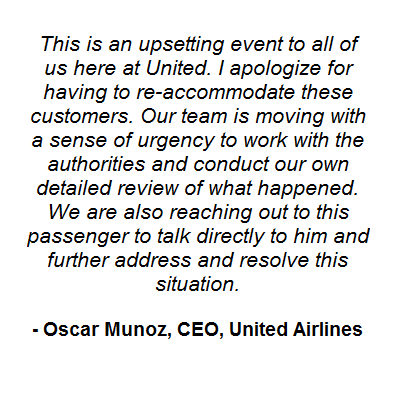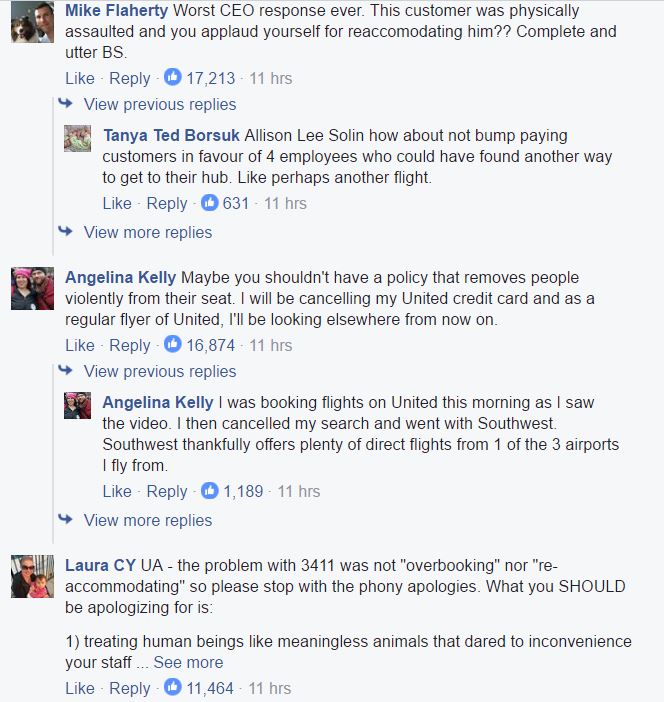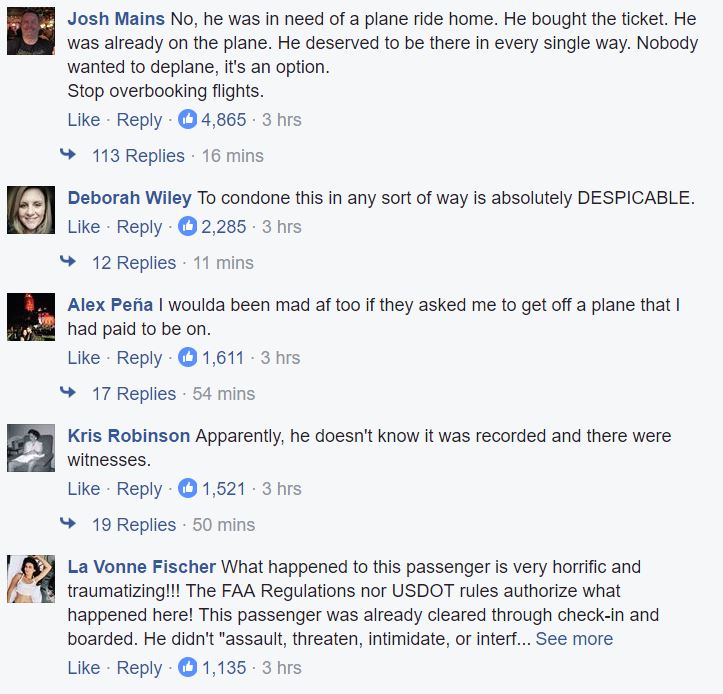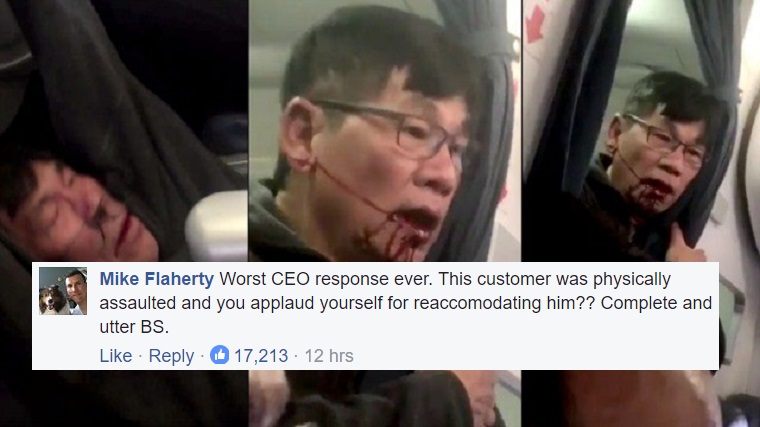You probably woke up to multiple videos on Facebook of a disoriented man being dragged out of a United Airlines plane by his arms.
@united @FoxNews @CNN not a good way to treat a Doctor trying to get to work because they overbooked pic.twitter.com/sj9oHk94Ik
— Tyler Bridges (@Tyler_Bridges) April 9, 2017
@United overbook #flight3411 and decided to force random passengers off the plane. Here's how they did it: pic.twitter.com/QfefM8X2cW
— Jayse D. Anspach (@JayseDavid) April 10, 2017
There are photographs of him with a bloodied mouth as well. He was quoted as repeatedly saying "don't kill me" and "I have to go home".
#flythefriendlyskies my husband was on that flight. Screw you United!! @united pic.twitter.com/4EcxrMy5jZ
— Kaylyn Davis (@kaylyn_davis) April 10, 2017
What led to the incident
This incident happened because a United Airlines flight from Chicago to Louisville had been overbooked and needed to make space for crew members who were needed at the next destination to operate another flight.
United Airlines had initially offered US$800 for anyone who volunteered to be taken off the flight. When no one did, it randomly picked passengers.
The bloodied man was one of those picked. He initially refused. He identified himself as a doctor and claimed that he had to see patients in Louisville the next day.
United Airlines' CEO's initial response
United Airlines' Facebook page shared a short statement from its CEO Oscar Munoz:

It was met with immediate backlash for its poor choice of words:

Munoz's email to UA employees calls passenger disruptive and belligerent
Munoz subsequently sent an email to UA employees to say he deeply regretted that the incident arose and he stands behind UA personnel.
The email found its way to CNBC's Ryan Ruggiero who promptly tweeted it.
Referring to the incident, Munoz wrote, "This situation was unfortunately compounded when one of the passengers we politely asked to deplane refused and it became necessary to contact Chicago Aviation Security Officers to help."
He added that UA personnel "followed established procedures for dealing with situations like this."
Sharing "preliminary reports" of the incident filed by UA employees, Munoz said that the when the passenger was approached "apologetically" and told why he was "being denied boarding", the passenger "raised his voice and refused to comply."
Munoz said the passenger was approached a few more times after that to deplane, and "each time he refused and became more and more disruptive and belligerent."
The contents of the email was subsequently reported by Time Magazine and its readers were having none of Munoz's explanation:

The passenger has not made a public statement on what happened so far.
Since you're here, why not read this too?
We lost track of the number of times people think lifelong learning is an old people thing
If you like what you read, follow us on Facebook and Twitter to get the latest updates.
If you like what you read, follow us on Facebook, Instagram, Twitter and Telegram to get the latest updates.
